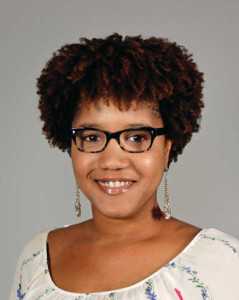Encourage More Women To Participate In Agriculture [Opinion]

Lauren Alexander
Furthermore, the 2012 Ag Census reported that among the 2.1 million principal farm operators in 2012, a resounding 86% were men, and a mere 14% were women. Out of that 14%, 91% of those female operators earned less than $50,000 in sales in 2012.
To make a long story short, for as much as we talk about needing young people to start participating in agriculture, we need to be doing the same for women.
I’ll be the first to admit that until recently, American Vegetable Grower hasn’t done a great job highlighting women in the produce industry. In our more than 105 year history, we’ve only featured a hand-ful of women on our covers, but we’re making a significant effort to turn the tide.
In our September 2013 issue we featured Maureen Torrey of Torrey Farms, and the 2013 Grower Achievement Award Winner, on our cover, and several months later, we featured a young potato grower from Maine, Sara Corey, on our March 2014 cover. Corey’s story was significant because not only is she a woman, she is one of the youngest growers of either gender we’ve ever featured on the front of
our magazine.
In my conversation with Corey, she indicated that she often felt overwhelmed walking into trade shows and meetings, as she was vastly outnumbered by her male counterparts. As time went on, however, and she learned more about the industry, she became more confident speaking up about certain issues, but it took her a while to get there.
Although Corey’s experience is not unusual, the good news is there are plenty of industry organizations and events that aim to encourage women to participate in agriculture. For example, Washington State University Extension’s 2013 Women in Agriculture conference featured nearly 500 participants from around the country, and the University of Nebraska holds a similar event, The Women In Agriculture Conference featuring 30 workshops and 45 speakers with more than 350 participants.
Just as we’re doing with young people, opening up a larger space for women to participate in agriculture will allow them to view it as a viable career path. They need to know their opinion counts and that they can make a difference.
Do you know a woman making a difference in our industry? If so, tell us, and use her story in whatever way you can to help inspire others like her to step up to the plate. Male, female, young, or old, agriculture needs as many hands in the pot as possible, so let’s be sure to extend the invitation to all interested parties.









